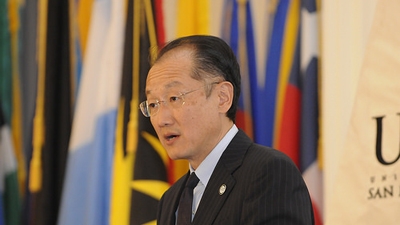The era of your social background, race, gender or country of birth defining the opportunities available to you is coming to an end in Latin America. That was the bold claim from World Bank Group President Jim Yong Kim in his speech to the Organization of American States (OAS).
In a conversation with OAS Secretary General José Miguel Insulza, President Kim set out the principal obstacles to advancing the region’s social gains in the coming years as well as reiterating the Bank’s support to helping overcome them.
Traditionally plagued by inequality, Latin America and the Caribbean have made great strides over the past ten years to redress the class balance. Today over a third of the Latin American population are considered to be middle class and extreme poverty in the region has fallen by half since 2003.
But in the face of slowing growth, this is no time to be complacent.
“While Latin America and the Caribbean have improved a lot in recent years, we could lose momentum unless we maintain- and deepen – our focus on inclusive economic growth,” Kim stated.
More than 70 million people have been lifted out of poverty in the past decade as extreme poverty in the region dropped by half to 12.3 %. At the same time around 50 million people joined the ranks of the middle class, boosting the total to 32% of the population.
That said, however, the region is still far from being considered middle-class and social equity gains have already started to stall. To temper this decline, President Kim called on a series of key reforms to boost productivity and competitiveness, including quality of education, innovation. and modernizing infrastructure.

